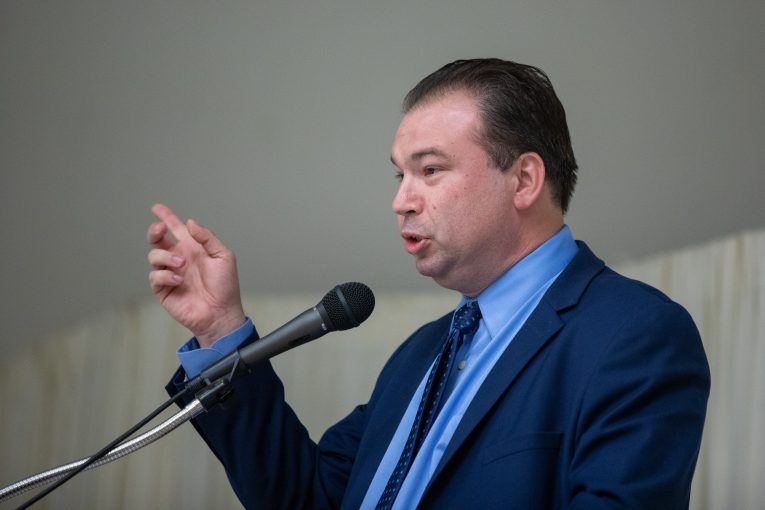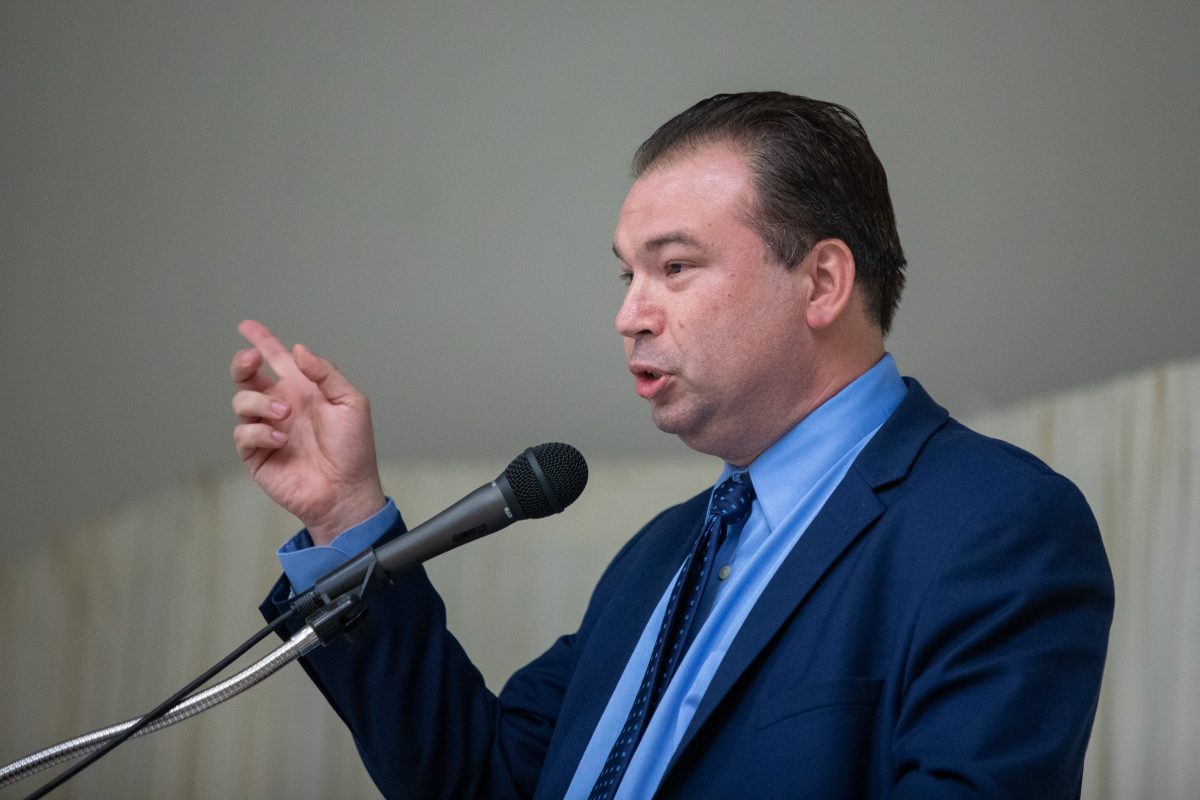

By Jeffrey Deskovic
“Looking back” will feature reprints of articles that Jeff previously wrote while a columnist at The Westchester Guardian, which encompass topics that are applicable here in CA as well as across the country and not simply applicable to NY.
On January 25, 2011, President Obama gave his State of The Union address, which many news commentators referred to as his “half time address”—a reference to the fact that he has served half of his first term. It struck me that two years is a good barometer for assessing him as President on the issue of wrongful convictions, given, after all, coming down the stretch in his primary campaign two and a half years ago, in two major campaign speeches, he made a point of referencing wrongful convictions and the need to do something about them.
President Obama, of course, comes from the state of Illinois, and was well aware of the problem of wrongful convictions that prompted then-Illinois Governor Ryan to empty death row, in view of the fact that out of the last 25 death row inmates, 12 were executed while 13 were exonerated, a figure which Ryan himself stated was “no better than a flip of a coin.” As a State Senator, Obama was the mover and shaker behind the passage of legislation which mandated videotaping of interrogations in capital cases, overcoming strong opposition from Democrats who feared being perceived as too soft on crime, tough-on-crime Republicans whose predictable knee-jerk reaction was opposition, incoming then-Governor Blagojevich who publicly announced his opposition, and, of course, law enforcement. There can be no doubt that then-State Senator Barack Obama, early on in his political career, possessed a keen awareness of the scope and character of wrongful convictions and therefore his performance thus far as President with respect to the issue is all the more disappointing.
Firstly, the President’s personal silence on the subject in his State of The Union message was not entirely surprising, in light of his total silence with respect to wrongful convictions throughout his first two years in the Oval Office, or any affirmative signal from his Justice Department under US Attorney General Holder, with the single exception, on the related but distinct issue of federal prosecutorial misconduct, which was announced without a single utterance of the word “wrongful conviction” or a concern that such misconduct can and does result in wrongful convictions. In fact, Obama’s silence pre-dates his assumption of office: he never spoke of it other than in the primary, appearing to relegate it to obscurity during the general election. If there were any doubt as to whether his silence was a question of neglect, his failure to respond to the Donald Gates’  exoneration following 27 years in federal prison suggests that his silence has been the product of calculation.
exoneration following 27 years in federal prison suggests that his silence has been the product of calculation.
Obama’s Justice Department saw fit to perpetuate the Bush administration’s amicus brief in support of denial of post-conviction DNA testing for inmates, proffering a state’s rights argument, in the Osbourne vs. Alaska case, strongly suggesting abandonment of at least this remedy to wrongful conviction by the President. In a classic 5-4 decision, the Supreme Court went on record that “inmates have no constitutional post conviction right to DNA Testing.”
President Obama is on the wrong side of the issue when it comes to the death penalty, to wit, that he is in favor of it under circumstances “so heinous, so beyond the pale, that the community is justified in expressing the full measure of its outrage by meting out the ultimate punishment,” because of the danger of executing innocent people, as demonstrated by the 138 defendants exonerated from death row to date. Of course, no one can know for certain how many innocent people were exonerated, given the fact that there are few advocates and organizations engaged in the exoneration of the deceased. Unfortunately, when there is sufficient public outrage, that is when errors are most likely to occur.
Obama’s appointment to the U.S. Supreme Court of former Solicitor General Elena Kagan was also a blow to the anti-wrongful conviction movement, given her pro-death penalty stance, again in light of the risk of wrongful execution.
Similarly, his appointment of Sonia Sotomayor to the U.S. Supreme Court, was yet another blow, given her penchant for deciding cases based on procedural technicalities rather than on the merits of arguments advanced. One such instance involved my case, her voting to time bar my Habeas Corpus Petition arguing my innocence because it was four days late, a lateness caused by erroneous information by the court clerk. Other examples included her frequent rejection of prosecutorial misconduct as a basis for reversal, even while acknowledging that the conduct occurred, often labeling it as harmless, even when confronted with two or three such instances in a single case. As a US Supreme Court Justice, she authored the opinion rejecting the final appeal of a condemned man, Holly Wood, who had been convicted of murdering his girlfriend, but whose inexperienced attorney had failed to present evidence of his client’s mitigating mental deficiencies.
Finally, President Obama’s decision to continue to use military tribunals instead of federal trials—a reversal of his well publicized campaign position stating that he would in fact try those cases in federal district courts, sets the stage for further wrongful convictions. Since wrongful convictions are occurring in state and federal courts in significant numbers, committed and bound by rules of evidence, standards of proof, and procedural safeguards intended to protect individuals from wrongful conviction, why would one who specifically expressed concern over wrongful convictions opt for military tribunals which strip those same protections, thus lending themselves to a much greater probability of wrongful convictions?
“Jeffrey Deskovic, Esq, MA, is an internationally recognized wrongful conviction expert and founder of The Jeffrey Deskovic Foundation for Justice, which has freed 9 wrongfully convicted people and helped pass 3 laws aimed at preventing wrongful conviction. Jeff is an advisory board member of It Could Happen To You, which has chapters in CA, NY, and PA. He serves on the Global Advisory Council for Restorative Justice International, and is a sometimes co-host and co-producer of the show, “360 Degrees of Success.” Jeff was exonerated after 16 years in prison-from age 17-32- before DNA exonerated him and identified the actual perpetrator. A short documentary about his life is entitled “Conviction“, and episode 1 of his story in Virtual Reality is called, “Once Upon A Time In Peekskill“. Jeff has a Masters Degree from the John Jay College of Criminal Justice, with his thesis written on wrongful conviction causes and reforms needed to address them, and a law degree from the Elisabeth Haub School of Law at Pace University. Jeff is now a practicing attorney.
